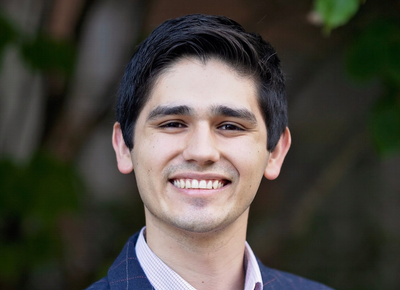
Christian Sanchez, assistant professor of chemistry and biochemistry, recently co-authored a groundbreaking study that uncovers resistance of the bacterial pathogen Pseudomonas aeruginosa to widely used cleaning agents. Published in ACS Infectious Diseases, the research identifies disinfectants that remain effective against this resilient bacterium, offering insights that may influence sanitation protocols in healthcare settings.
The study, led by chemists at Emory University with contributions from Villanova University, highlights the widespread resistance of Pseudomonas aeruginosa to quaternary ammonium compounds (QACs) — active ingredients commonly found in household and hospital cleaning products, such as antibacterial wipes, disinfectant sprays and sanitizing solutions. Sanchez, co-lead author on the paper, conducted the research as part of his PhD studies at Emory before joining Samford's faculty.
“Resistance to disinfectants is a known but often overlooked issue, and our work shows it’s widespread in a serious, antibiotic-resistant pathogen,” said Sanchez. “I hope our discovery of a new mechanism for effective disinfectants will lead to new biocides and improved sanitation practices.”
The pathogen, which poses risks to individuals with compromised immune systems or those with invasive medical devices, has become a concern worldwide. According to the Centers for Disease Control and Prevention (CDC), multidrug-resistant P. aeruginosa is responsible for more than 35,000 deaths annually in the United States alone, a number that has grown since the onset of the COVID-19 pandemic.
Researchers tested 20 different drug-resistant strains of Pseudomonas aeruginosa from hospitals worldwide and found that 80% exhibited full resistance to QACs. However, the study also demonstrated the effectiveness of a newly developed biocide, known as a quaternary phosphonium compound (QPC), that works through a novel mechanism to overcome this resistance.
Funding for the research was provided by the National Institutes of Health, with additional contributions from researchers at Emory University and Villanova University. The team plans to continue investigating new biocidal compounds to enhance public health and sanitation practices.
